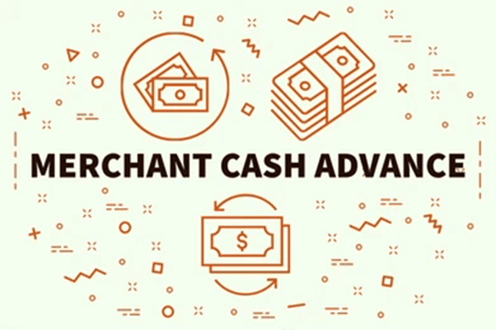Small businesses especially struggle to maintain smooth, even cash flows given the nature of their smaller scale. Fortunately, Merchant Cash Advance (MCA) may be the answer to handling the ups and downs in cash flows without hassles. Originally begun for small business retailers that could not procure bank loans, a merchant cash advance is a unique financing mechanism, primarily for merchants accepting credit and debit cards.
What is a Merchant Cash Advance
A merchant cash advance is a process whereby a borrower obtains financing based on future sales or credit card sales in a merchant account that cannot yet be touched.
A merchant cash advance can be obtained in two ways. The first option is to get upfront cash in return for a fraction of the potential sales. The second option is when lenders disburse payments based on flexible repayment tenures until the cash advance is paid back in its entirety.
Advantages of Merchant Cash Advance
A merchant cash advance lender offers factor rates instead of interest rates. The typical factor rate is set between 1.1 to 1.5 and used to mitigate the risks associated with the uncertainty of future sales.
The factor rate along with the principal amount sums up the total repayment amount you need to pay back to the lender. In practice, a high factor rate means higher fees. To determine if a merchant cash advance will be the appropriate financing tool to smooth cash flows, explore the core benefits.
1. MCA During Cash Liquidity Crises
A practical alternative to acquiring funds when the loan request is rejected by the bank, merchant cash advances can be used to meet any kind of financial emergency. Cash flow is easier with small business cash advances as it leads to a good credit score in the long run.
2. MCA Funds Are Unsecured
The best advantage of merchant cash advance is that the borrower need not produce any collateral to secure the advance, but instead guarantees a loan with future cash flows. Due to this reason, a personal guarantee agreeing to repay the advance must be attached. As there are no collateral assets involved, an MCA presents an accessible financing option for prospective borrowers.
3. Obtain A Merchant Cash Advance in Hours
For businesses without time for the formalities of applying for bank financing, the efficiency of an MCA ensures the funds reach a business rapidly. Because there are no laborious documentation processes necessary to receive an MCA, borrowers may be approved for a cash advance within a few hours to a day.
4. No Use Restrictions Attached
While most lenders require borrowers to disclose the intended use of a loan, a merchant cash advance does not demand the use of funds during an application. Businesses can allocate the funds to buy new equipment, renovate a building, hire new staff and more. In short, an MCA gives a borrower flexibility and freedom to utilize the funds as needed without restrictions.
5. Ideal for Business Owners With a Weaker Credit History
A merchant cash advance is accessible to a wide array of borrowers including those with weaker credit histories. For startups and small businesses without a strong credit history, accessing a cash advance is much easier than a traditional loan. Because lenders assess credit card revenue, creditworthiness is not necessarily a focus when establishing the rates and terms of the MCA.
Conclusion
A small business cash advance can be paid monthly, weekly, or daily based on prospective sales. When obtaining a merchant cash advance, keep an eye out for steeper factoring rates that may fluctuate between 40% and 350% depending on the borrower. Before making any decisions about signing on the dotted line for a merchant cash advance, be sure to clarify the terms with a lender directly.



